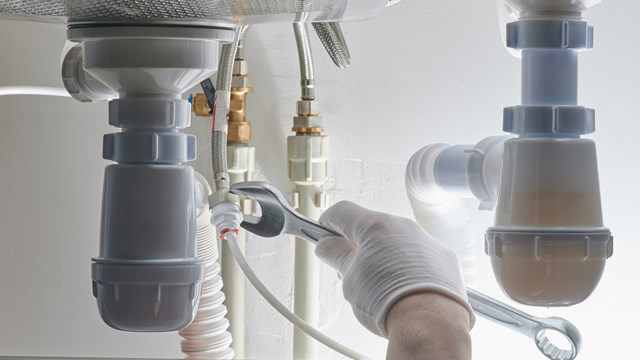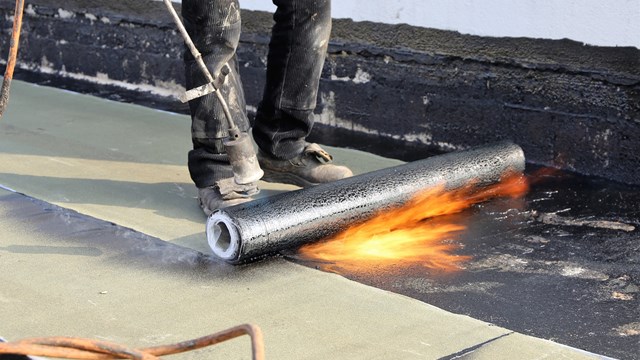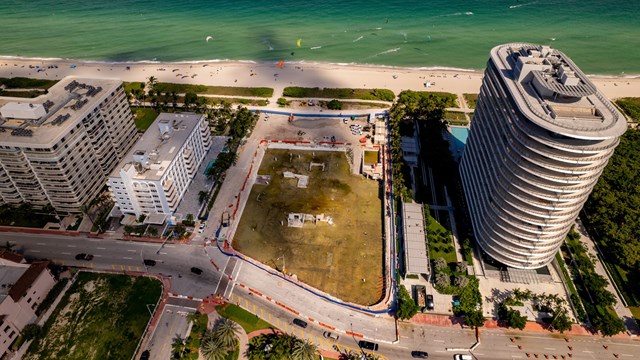It sounds like an urban legend—something that supposedly happened to your cousin’s friend’s cousin. A little girl was at a barbecue party at a friend’s house, frolicking in the pool with friends. She swam to the drain at the bottom of the pool and sat on it. The drain’s suction was so strong, it sucked the girl onto the aperture, trapping her under the water. Once the adults on the scene realized what was happening and rushed to help, it took two grown men 10 minutes to free her from the drain—which broke in the process—but it was too late to save her.
Tragically, this horrible series of events really happened, in a hot tub in McLean, Virginia, in the summer of 2002. The little girl was seven-year-old Virginia Graeme Baker—Graeme to her friends and family, and a more-than-competent swimmer. She also happened to be the granddaughter of Jim Baker, former President George H.W. Bush’s secretary of state, and a man with the influence to ensure that what happened to Graeme would never happen again.
Taking Action
Drowning is the number-two killer of children under the age of 14 in the United States. In the last 20 years, there have been almost 150 incidents of entrapment—someone getting stuck in the suction of a pool or hot tub drain—resulting in 36 deaths. Two deaths a year might not seem like much in a country of 280 million people, but those 36 deaths were entirely preventable—and therein lies the tragedy.
On December 19, 2007, the Virginia Graeme Baker Act was signed into law by then-President George W. Bush. The law requires all public pools—including those in apartment complexes and HOAs—meet anti-entrapment safety standards established by the Consumer Products Safety Commission (CPSC). It also establishes a grant program for states that adopt these pool and spa safety laws as well as a national drowning prevention program.
From the point of view of buildings and condo associations with swimming pools, the most important part of the legislation is this sentence: “Public pools or spas that are not in compliance by December 17, 2008 may not open for use until compliant.”
When the law was passed, condos had the option of waiting a year to implement the new directives. But the waiting period is now over, and condos are now facing three options: get compliant, open their pools without being compliant and risk prosecution, or don’t open their pools at all.
New Standards
According to Bob Blanda, owner of Mill Bergen Pool Center in Brooklyn and president of the Northeast Pool and Spa Association (NESPA), which covers the NY-NJ metro area, the problem with the drain covers in most commercial pools and spas is their shape; they’re flat, flush with the bottom of the pool. If an object occludes the drain, the suction is amplified, and may be strong enough to trap someone under the surface. It’s also possible for a swimmer’s hair to become entangled in certain types of drain, or even for a victim to be eviscerated by extreme drain suction.
“The first and utmost thing,” Blanda stresses, “is that all the flat drain covers that pose an entrapment risk have to be replaced with new covers that won’t allow you to get stuck. No matter what, if there aren’t proper drain covers, or if drain covers are missing, no one is allowed in that pool until it’s resolved.”
So we know pools must be compliant to open—legally, that is. What exactly does the new law stipulate?
First, the act instituted a safety standard for anti-entrapment drain covers. It is now illegal to make, sell, or distribute drain covers that are not specially designed to prevent body/limb or hair entrapment. The new drain covers better regulate the flow of water, and have been tested to ensure that they do not generate excess suction.
Second, all public pools must have automatic shut-off valves for their drains making it easy for bystanders to kill the suction to a drain in case someone should become trapped by it.
Questions of Compliance
How do you know if your building’s pool is compliant with the act? Easy: you’re not up to speed with the law unless your pool was fitted with the new drain covers in the last few months. Stuart Roaker of the Pool Therapist, a commercial pool management company in Staten Island, says the Virginia Graeme Baker Pool and Spa Safety Act is something boards, management companies and pool management companies should be thinking about.
Roaker says many managers are unaware of the law, and that enforcement is lax. He also believes that they could be liable if they operate pools that don’t comply with the law.
“No one seems to know about it in the New York City area,” Roaker says. “In other portions of the country, they’re well versed and very, very proactive.” He adds that he’s received calls from buildings about the law, and when he contacts managers, he’s finding that they aren’t informed of the issue. “They’re too overwhelmed with managing their properties,” he says.
Anthony Sirianni, president of Stingl Products in Sterling, Virginia, a company that produces pool and spa safety devices, estimates that most basic installations to bring a pool into compliance fall within the $2,000 to $3,000 range—and cautions property managers not to be oversold by pool companies pushing packages containing expensive-and-unnecessary “bells-and-whistles.”
According to Edward J. Mackoul, president of Long Beach, New York-based insurance company Mackoul & Associates Inc., “To install a complaint drain cover and second anti-entrapment system can cost between $1,500 and $3,500, depending on whether both need to be done. Though that may seem high, it pales in comparison to the cost of defending a lawsuit in the event someone is injured or killed, as was Virginia Graeme Baker. If complying with the act saves even one life, it’s been worth it.”
The Enforcement Issue
While the prospect of someone risking even minor injury from a non-compliant pool drain should be enough to prompt boards to pony up and bring their facilities up to code, the financial consequences of ignoring the new rules add another note of urgency to the matter. Fines under the initial legislation were capped at $1.8 million—but as Sirianni notes, fines have since been increased by Congress to upwards of $15 million—per occurrence. Willful non-compliance could also involve criminal penalties, including fines or imprisonment.
Fifteen million dollars is no laughing matter—but then, the FBI anti-piracy warning that graces your screen before your DVD rental also threatens hefty fines for piracy, and that has proved to be something of a paper tiger. Does the VGB Act really have teeth?
According to some in the industry, enforcement of the act may be spotty, as federal agencies lack tentacles long enough to thoroughly inspect condo pools in New York and New Jersey, and the states themselves are dealing with budget crises already and may not jump to divert resources toward enforcement.
According to Blanda, “The bottom line is that there are way more pools and spas than there are code officials to inspect them. I know the Health Department—who were really the original go-to people when it came to commercial pools—does not have the ability to enforce this. The CPSC has taken over because it’s too big for the Health Department, which only has two or three inspectors in a borough. I know they’re triaging it in levels, going after one level at a time. The first level might be kiddie pools where the water is only two feet deep, working their way backwards until they can finally get to everybody.”
Against this backdrop, there are troubling and widespread reports that some—and perhaps many—buildings and associations will open their pools this spring without the mandated anti-entrapment safety devices. “Obviously,” Blanda says, “there are pools that are not compliant yet.”
No one is exempt from complying with the act, but communities that have kiddie pools and/or spas should take note. Scott Wolfson, a spokesman for the CPSC in Washington, D.C. lays out a strategy for enforcement. “We set out three key areas on which we focus the most: in-ground spas, wading pools, and other pools that are designed for children.”
Wolfson concedes that his agency is not large enough to directly enforce the law, but says his organization will be liaising with local inspectors. “We need help from those who are close to pools,” Wolfson says. “What we are seeking to do is create partnerships. We’re hoping to work with as many states and communities as we can. Health professionals do sanitation checks of pools, and we’re hopeful that when they check for sanitation, they will check to see that the right drain covers are in place.”
Insurance Company Involvement
It may be that the real policing of the act will be done by insurance companies, which hold considerable sway over the buildings and associations they cover. As of early February, insurance underwriters were still formulating their exact response to non-compliant pools, but it’s expected to be extremely tough.
“Buildings that don’t have the pool open year round, should at the very least be thinking about this issue now and not waiting until the last moment. There are going to be a lot of buildings scrambling in May to be ready for Memorial Day and if they wait to long, they may not be able to have the work done as timely as they would like. Buildings can get a list of companies that have been certified to manufacture drain covers and safety vacuum release systems off of the U.S. Consumer Product Safety Commission’s website at www.cpsc.gov.
“Insurance companies generally inspect the premises of a building after an insurance policy has been secured,” says Mackoul. “If the building has failed to comply with the Virginia Graeme Baker Pool and Spa Safety Act, you can bet that the insurance company will issue immediate notice of cancellation.”
With insurance cancellation a distinct possibility, it’s prudent for boards to arrange for their pool drains to be upgraded—if not before they open for the season, then as soon as humanly and logistically possible.
When you consider that Virginia Graeme Baker—and she’s hardly the only casualty—would still be alive if there were basic safety measures in place, compliance with her namesake legislation is a no-brainer. Apathy and tight budgets can be powerful disincentives, but building and HOA administrators who think they can fly under the radar are courting more than one kind of disaster. In the case of building administrators who know the law and opt to ignore it, the potential for trouble goes well beyond financial or legal consequences—such negligence could end in needless tragedy.
Greg Olear is a freelance writer and a frequent contributor to The New Jersey Cooperator. Freelancer Anthony Stoeckert also contributed additional research to this article.







Leave a Comment